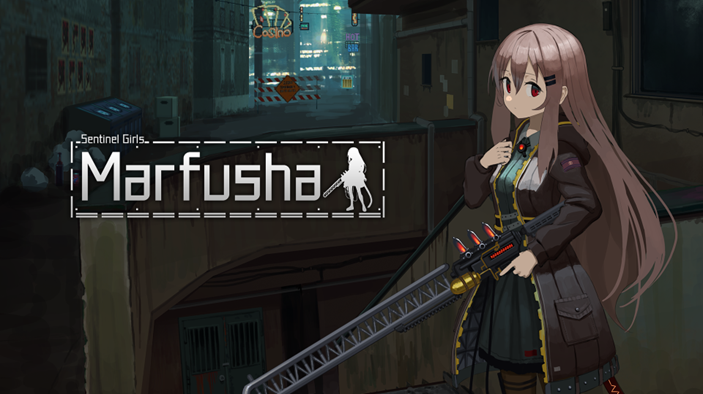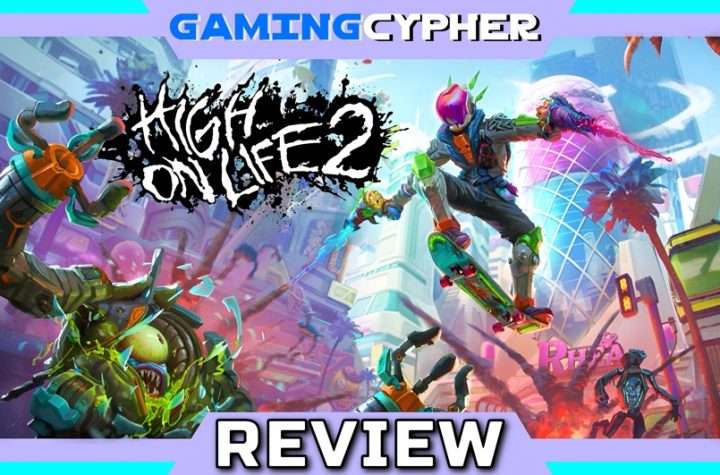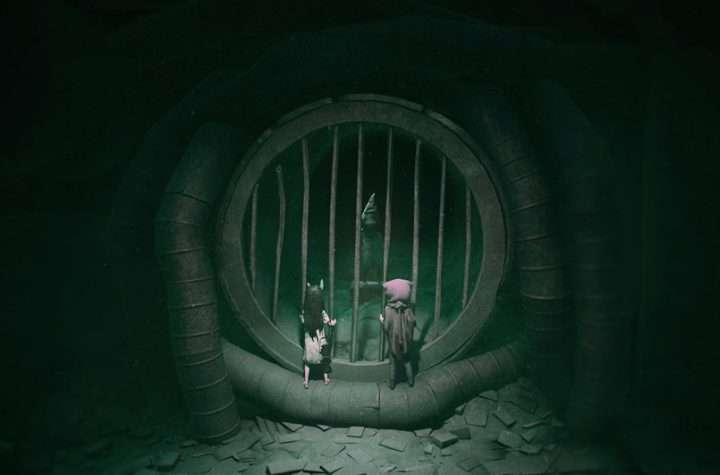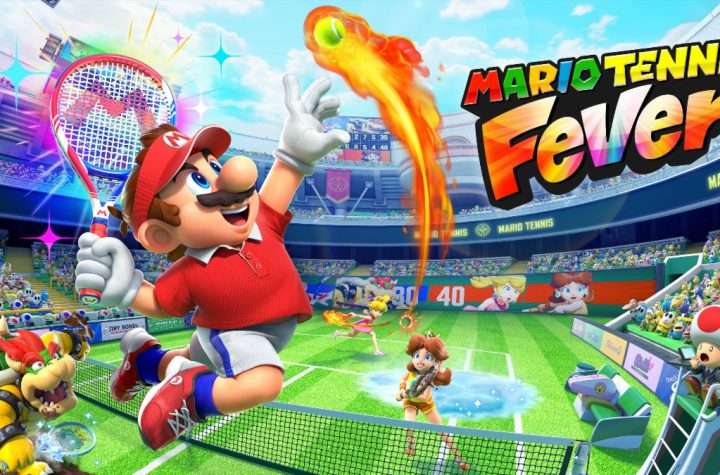At first, I didn’t know how to describe my time with developer hinyari9’s Marfusha. I had fun, yes, but there was something more to my experience with the game. As I played, I realized that I was feeling some kind of nostalgia, yet I could not name what I was nostalgic for. It wasn’t until I was in the middle of the game’s challenge mode that I realized that Marfusha had transported me to the realm of the relaxing flash games from my youth, just with anime-esque pixel art that looks wonderful on consoles.
I compare Marfusha to older flash games because, like those games, it has an incredibly simple gameplay loop. Players take control of Marfusha, a girl conscripted by her country to defend the walls from opposing armies. The story mode isn’t anything to write home about, but it’s an effective premise that offers sufficient excuse for players to face off against and mow down waves upon waves of killer robots. The standoffs against these mechanical hordes will have players shoot down enemy robots before said robots can destroy a wall, and the completion of each wave will award players money based on their performance and the chance to spend that money on one of three randomized cards.

These cards grant a wide range of effects. Some cards will increase the player character’s base stats like damage, magazine capacity, or reload speed. Some cards will increase the defense of the wall. Some cards will allow you to recruit other soldiers, and each of these secondary soldiers specializes in one of the weapons the player characters can use. Speaking of weapons, the player has access to ten weapons in the game (eleven counting the standard starter pistol). To discourage players from relying on one gun for their entire playthrough, weapons have a set durability that goes down with sustained use, forcing players to swap out weapons after a set number of waves lest that weapon break mid-combat, forcing the player to use the useless starter pistol. Finally, the game gives you cards for powerful secondary weapons and deadly traps to use against enemies, though both are one use only. Because of this limited use, players are forced to think strategically about when and how to use these secondary weapons and traps. All of this makes the card system a way to keep the game fresh as the game forces the player to adapt with the randomized weapons, allies, and upgrades they get in their repeated playthroughs.
Which leads me into how players will interact with the game. There are two different modes in Marfusha: the story mode and the challenge mode. The story mode is nothing to write home about, as the story isn’t that complex or interesting and it only takes a little over an hour to complete. However, the story does feature multiple endings based on who you recruit as your ally during that playthrough, so there is incentive to go back to it. Unfortunately, the story mode is easier than you would hope (in my first playthrough, I only failed a mission once). The mode is more so a tutorial for the challenge mode. The challenge mode sees the player take control of either Marfusha or one of the recruitable allies from the story mode and survive as long as possible against hordes of robots. Each girl has their own unique base stats, and the ally characters are locked into the weapon archetypes they specialized in as ally npcs. This results in the challenge mode being a longer and more customizable experience that players can come back to as many times as it takes in an experience that is both challenging yet oddly relaxing.
This dichotomy between challenge and relaxation is what I want to emphasize here. I began this review by comparing Marfusha to an old flash game. What I meant by this is that it replicates the experience of those games by offering a simple, relaxing gaming experience. It really is a perfect mix of mindlessly mowing down enemies while still forcing the player to think about how to best use their money for weapons and upgrades so that the player is always involved while not being overwhelmed. Through my time, I would find myself idly listening to music or a podcast while playing the game and enjoying the experience, mostly to destress myself from other more stressful aspects of my life. It’s because of this that I’ve developed a fondness for the game, as it is as simple and classic a good gaming experience that you can find.
For being a mechanically solid good time, I give Marfusha a 9/10.
For more information, visit: https://playism.com/en/
Related: Reviews by Josh Freeman
I love games and love talking about games. Some of my favorites include action games (both 2D and 3D), metroidvanias, roguelikes, shooters, and Indies.





More Stories
High On Life 2 Review for PlayStation 5
JOHN WICK Video Game Announced by Lionsgate and Saber Interactive during Sony State of Play Showcase
GTA Online this Week Features Lunar New Year Celebrations, The Grotti Itali Classic, Plus More